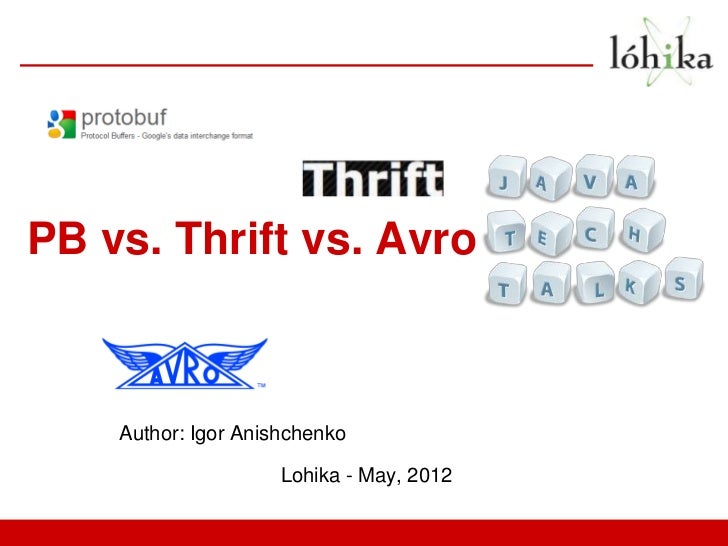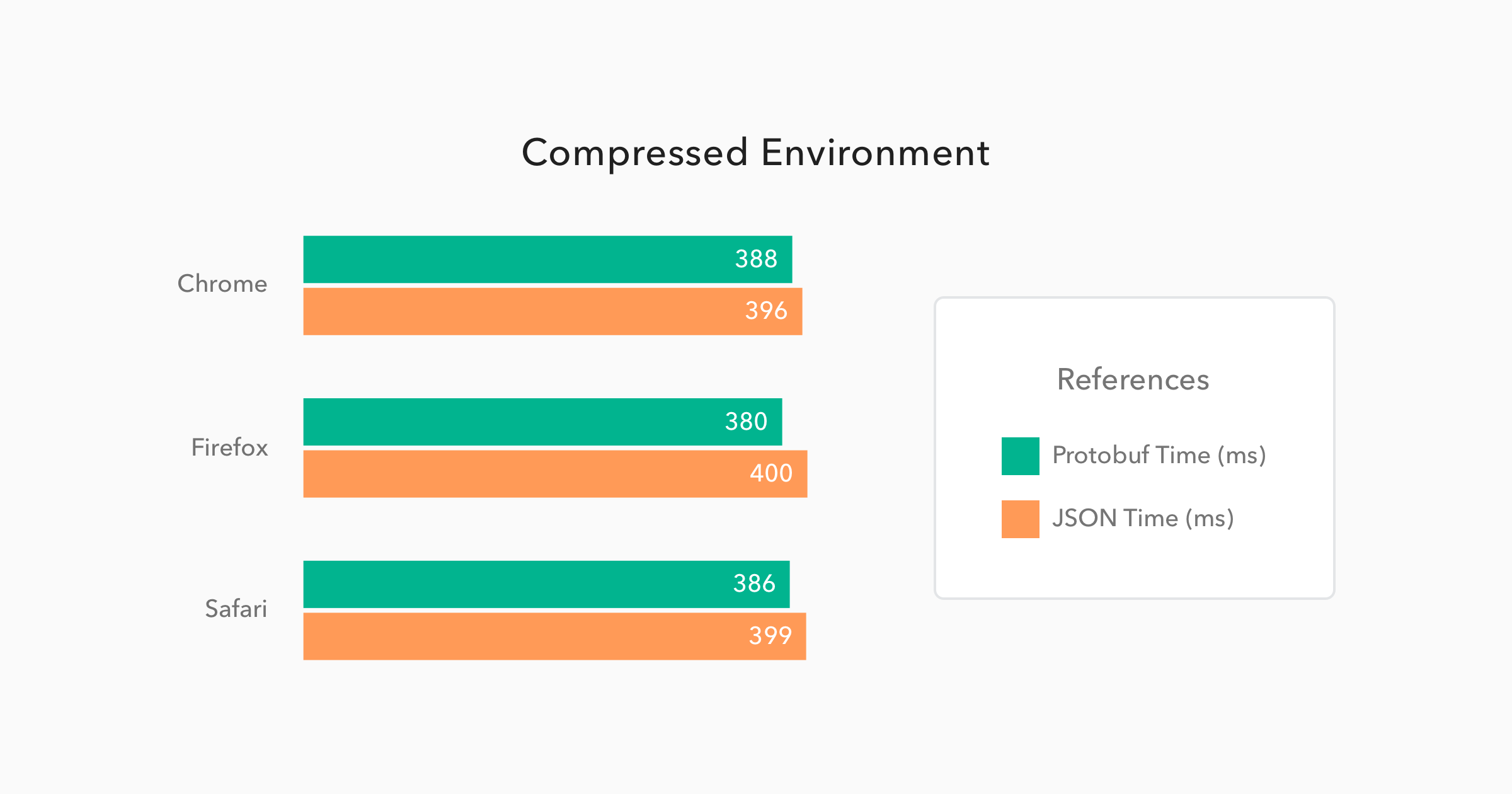
Java Serialization Vs Protocol Buffers Database Definition
Mencari sebuah aplikasi efek gitar PC terbaik memang membutuhkan ketelitian dan kemampuan memilih sesuai kebutuhan.Namun Anda akan sangat terbantu apabila menggunakan Voxeno Tube Amp – Virtual Tube Amplifier yang merupakan besutan dari Voxengo. Free download software efek gitar pc. Gitar Tuner zellikle klasik ve akustik gitar iin akort yapmaya yardmc olmak zere gelitirilmi bir programdr. Hem gerek enstrman sesini dinleyip.
| Developer(s) | |
|---|---|
| Initial release | Early 2001 (internal)[1] July 7, 2008 (public) |
| Stable release | |
| Repository | |
| Operating system | Any |
| Platform | Cross-platform |
| Type | serialization format and library, IDL compiler |
| License | BSD |
| Website | developers.google.com/protocol-buffers/ |
Welcome to the developer documentation for protocol buffers – a. Is aimed at Java, C, or Python developers who want to use protocol buffers in. Want the information you're serializing to be structured by defining protocol. In computer science, in the context of data storage, serialization (or serialisation) is the process of translating data structures or object state into a format that can be stored (for example, in a file or memory buffer) or transmitted (for example, across a network connection link) and reconstructed later (possibly in a different computer environment).
Protocol Buffers (Protobuf) is a method of serializing structured data.It is useful in developing programs to communicate with each other over a wire or for storing data. The method involves an interface description language that describes the structure of some data and a program that generates source code from that description for generating or parsing a stream of bytes that represents the structured data.
Google developed Protocol Buffers for internal use and provided a code generator for multiple languages under an open source license (see below).
The design goals for Protocol Buffers emphasized simplicity and performance. In particular, it was designed to be smaller and faster than XML.[3]
Protocol Buffers are widely used at Google for storing and interchanging all kinds of structured information. The method serves as a basis for a custom remote procedure call (RPC) system that is used for nearly all inter-machine communication at Google.[4]
Protocol Buffers are similar to the Apache Thrift (used by Facebook) or Microsoft Bond protocols, offering as well a concrete RPC protocol stack to use for defined services called gRPC.[5]
Data structures (called messages) and services are described in a proto definition file (.proto) and compiled with protoc. This compilation generates code that can be invoked by a sender or recipient of these data structures. For example, example.pb.cc and example.pb.h are generated from example.proto. They define C++ classes for each message and service in example.proto.
Canonically, messages are serialized into a binarywire format which is compact, forward- and backward-compatible, but not self-describing (that is, there is no way to tell the names, meaning, or full datatypes of fields without an external specification). There is no defined way to include or refer to such an external specification (schema) within a Protocol Buffers file. The officially supported implementation includes an ASCII serialization format,[6] but this format—though self-describing—loses the forward- and backward-compatibility behavior, and is thus not a good choice for applications other than debugging.

Though the primary purpose of Protocol Buffers is to facilitate network communication, its simplicity and speed make Protocol Buffers an alternative to message defines two mandatory data items, x and y. The data item labelCorrente do bem download dublado avi. is optional. Each data item has a tag. The tag is defined after the equal sign. For example, x has the tag 1.
The 'Line' and 'Polyline' messages, which both use Point, demonstrate how composition works in Protocol Buffers. Polyline has a repeated field, which behaves like a vector.
This schema can subsequently be compiled for use by one or more programming languages. Google provides a compiler called protoc which can produce output for C++, Java or Python. Other schema compilers are available from other sources to create language-dependent output for over 20 other languages.[7]
For example, after a C++ version of the protocol buffer schema above is produced, a C++ source code file, polyline.cpp, can use the message objects as follows:
Language support[edit]
proto2 provides a code generator for C++, Java, C#,[8] and Python.[9]
Third-party implementations are also available for JavaScript.[10]
proto3 provides a code generator for C++, Java (including JavaNano, a dialect intended for low-resource environments), Python, Go, Ruby, Objective-C and C#.[11] Since 3.0.0 Beta 2 support for JavaScript.[12]
Third-party implementations are also available for C[13][14], Dart, Haskell[15], Perl, PHP, R[16], Rust[17][18][19], Scala, Swift[20] and Julia.[21]
See also[edit]
References[edit]
- ^'Frequently Asked Questions Protocol Buffers'. Google Developers. Retrieved 2 October 2016.
- ^'Releases - google/protobuf'. Retrieved 16 February 2020 – via GitHub.
- ^Eishay Smith. 'jvm-serializers Benchmarks'. Retrieved 2010-07-12.
- ^Kenton Varda. 'A response to Steve Vinoski'. Retrieved 2008-07-14.
- ^'grpc'. grpc.io. Retrieved 2 October 2016.
- ^'text_format.h - Protocol Buffers - Google Code'. Retrieved 2012-03-02.
- ^ThirdPartyAddOns - protobuf - Links to third-party add-ons. - Protocol Buffers - Google's data interchange format - Google Project Hosting. Code.google.com. Retrieved on 2013-09-18.
- ^'Protocol Buffers in C#'. Code Blockage. Retrieved 2017-05-12.
- ^'Protocol Buffers Language Guide'. Google Developers. Retrieved 2016-04-21.
- ^'Protocol Buffers for JavaScript'. github.com. Retrieved 2016-05-14.
- ^'Protocol Buffers Language Guide (proto3)'. Google Developers. Retrieved 2016-04-21.
- ^'Protocol Buffers v3.0.0-beta-2'. Google Developers. Retrieved 2016-05-14.
- ^'Nanopb - protocol buffers with small code size'. Retrieved 2017-12-12.
- ^'Protocol Buffers implementation in C'. Retrieved 2017-12-12.
- ^https://github.com/google/proto-lens
- ^https://github.com/eddelbuettel/rprotobuf/tree/master/src
- ^https://github.com/stepancheg/rust-protobuf
- ^https://github.com/danburkert/prost
- ^https://github.com/tafia/quick-protobuf
- ^https://github.com/apple/swift-protobuf
- ^'ThirdPartyAddOns - protobuf - Links to third-party add-ons. - Protocol Buffers - Google's data interchange format - Google Project Hosting'. Code.google.com. Retrieved 2012-11-07.
External links[edit]
- Official documentation at developers.google.com
- protobuf on GitHub